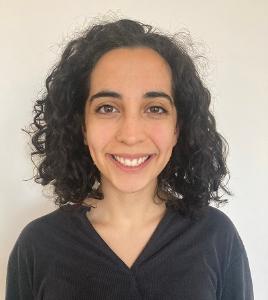 Tell us a bit about your background…
Tell us a bit about your background…
I was born in Canada and lived in the Vancouver area until moving to the United States when I was 13. I completed my undergraduate degree in biochemistry with a minor in mathematics at Western Washington University, a medium-sized state school in Washington State (30 miles south of the Canadian border!). I was on a pre-medicine track for a while, which was part of my motivation in choosing to major in biochemistry – something I do not regret at all. My engagement in the sciences never interfered with my passion for social justice and equity. When I started thinking about what to do post-graduation I found myself yearning to learn more about the inequalities in the world, and to develop tools to impart change.
What inspired you to study social policy/what does it mean to you?
About halfway through my undergraduate degree I started to better understand how political systems control and limit access to services. I was working towards being a doctor, but my interest shifted to the American health care system and the rampant inequalities. With my Canadian background it was easy for me to compare my family’s experience between the two systems, and I quickly developed interest in the roots of systemic inequality and factors that can drive change. I have a specific interest in refugee access to healthcare; my family are refugees, and with the rise of refugees worldwide and tightening of welfare provisions there is a clear need to work on progressive and inclusive policy in this arena.
You were awarded a Fulbright scholarship. How did you celebrate when you received the good news?
I was a ball of anxiety for weeks awaiting either a rejection or confirmation email. When I received the news, the first person I called was my Mom! I was visiting a friend for a spring break ski trip, and we went out for some celebratory drinks, then skied all day! I am so thankful to the Fulbright commission for helping to enhance my experience here in Glasgow.
Why did you choose to continue your studies at the University of Strathclyde?
I knew I wanted to study at a UK university, and I knew I wanted to study something related to health policy/public health/public policy. I had never seen a course focused on Social Policy until I started digging, and it appealed to me greatly because of its focus on the impact policy has on people, not just the process of policy formulation. I ultimately decided on Strathclyde because I was impressed by progressive and people-centred publications being published from the School of Social Work and Social Policy. I knew I wanted to study at an institution that valued such impactful research.
What has been the highlight of your time at Strathclyde so far?
I have loved the flexibility my courses offer. I thought with a taught masters my coursework would be fairly rigid, but in each class I am able to read papers and write essays that are relevant to my interests. In my ethics class I focused all my essays on the ethics of refugee research. In my welfare class I was able to read and write about healthcare systems.
What would be your advice for people considering taking this course?
If you have any general interest in how policy impacts people, this course is for you. There is ample flexibility in reading and essay assignments, which will allow you to dive deep into your passions. Also, if you are not from a policy or sociology background, you should still apply! I had not taken a single political science (or related) course in my time as an undergraduate – the first few weeks presented a tough learning curve, but I am so thrilled I chose to broaden my educational training into the social sciences.
How would you describe Glasgow to those that haven’t been here before?
Glasgow is a welcoming and liveable city! There is no shortage of coffee shops for morning fun, and pubs and live music venues to keep you busy in the evening. I have found a great community at the local climbing gym and through the university. I love living here so much I am planning on staying for a few years after I graduate.
What would be your advice for students that are thinking about making a big move for their studies?
It is hard, but worth it! Do ample research on housing options, try to connect with other people from your country/region who have also made the move to seek advice. I found myself feeling pretty alone and confused the first month or so. Once I got settled with housing, banking, and school I was able to stop stressing about the change and focus on personal growth. Now that I have been here for a while, I can confidently say that stressful first month was absolutely worth it. Strathclyde is also a very international university and I have found great solace in connecting with peers from all over the world that made the same big move!
Have you found there to be any challenges when studying at postgraduate level?
I was surprised by how much more self-guided study is expected. Coming from a STEM undergraduate experience, where I was told what to study and what was going to be on the exam, the lack of structure was a little disorientating in the beginning. It took me a few months before I had a solid reading routine and a clear grasp on essay expectations. Now in semester 2 I feel like I have a handle on all my courses, and I appreciate the amount of responsibility I have over my own education.
What do you think of the support available?
The international office has been helpful from the time I first discovered University of Strathclyde. I corresponded with their office with general questions before I applied, they helped answer logistics about moving, and once I got here, I was able to meet with them in person. Additionally, I have found supervisors to be extremely supportive of my personal education goals – suggesting literature and other references to help me dive deep into critical theories on topics that interest me.
What are your ambitions for the future?
I hope to get a job in policy research here in Glasgow after graduation, and spend some time working for a few years before going back into academia. I then plan to pursue a DrPH (Doctorate in Public Health) or PhD in Health Policy and contribute to progressive and equitable policy reform.
As of October 2020 Natasha accepted a job offer for a Researcher role at Dartington Service Design Lab here in the UK.
